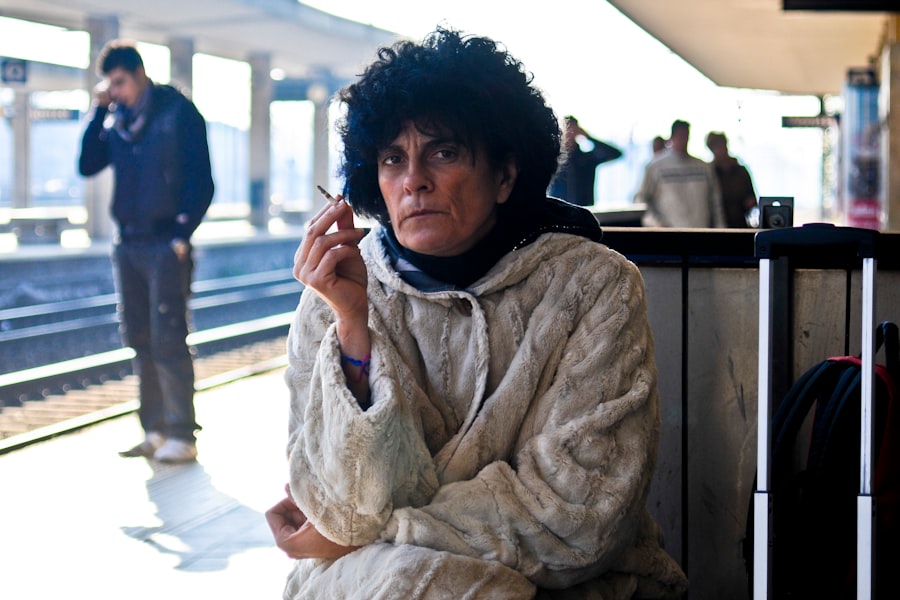Chickens require specific care during cold weather to maintain their health and well-being. Providing warmth is crucial, as chickens are susceptible to frostbite and hypothermia in low temperatures. A warm, dry environment is essential to protect them from harsh weather conditions.
Access to fresh, unfrozen water is vital to prevent dehydration, which can occur rapidly in cold weather. Regular checks of the water supply are necessary to ensure it remains accessible. A balanced, nutrient-rich diet is important for supporting the chickens’ immune systems and overall health during colder months.
High-quality feed should be provided to meet their nutritional needs. Protection from predators becomes increasingly important as days shorten and predator activity increases. A secure coop and run are necessary to safeguard chickens from threats such as foxes, raccoons, and birds of prey.
Proper ventilation in the coop is essential to prevent moisture buildup, which can lead to respiratory issues. Adequate airflow also helps regulate the coop’s temperature, ensuring a comfortable environment for the chickens. Understanding and addressing these needs is crucial for maintaining the health and happiness of chickens during winter months.
Table of Contents
- 1 Characteristics to Look for in Cold-Weather Chicken Breeds
- 2 Top 5 Cold-Weather Chicken Breeds
- 3 Tips for Keeping Chickens Warm in Cold Weather
- 4 Choosing the Right Housing for Cold-Weather Chicken Breeds
- 5 Feeding and Watering Cold-Weather Chicken Breeds
- 6 Health Considerations for Cold-Weather Chicken Breeds
- 7 FAQs
Key Takeaways
- Chickens need extra warmth and protection in cold weather to stay healthy and comfortable
- Look for cold-hardy chicken breeds with small combs and dense, insulating feathers
- Some top cold-weather chicken breeds include the Rhode Island Red, Plymouth Rock, and Wyandotte
- Keep chickens warm in cold weather by providing a draft-free coop, insulation, and supplemental heat if necessary
- Choose a well-insulated and ventilated coop with plenty of space for cold-weather chicken breeds to roost and move around
- Provide cold-weather chicken breeds with a balanced diet and access to fresh, unfrozen water to maintain their health
- Monitor cold-weather chicken breeds for signs of frostbite, respiratory issues, and other cold-related health concerns
Characteristics to Look for in Cold-Weather Chicken Breeds
Physical Characteristics
Cold-weather chicken breeds should have a thick and fluffy plumage to provide insulation against the cold. Additionally, breeds with smaller combs and wattles are better suited for cold weather, as these appendages are susceptible to frostbite. A docile and friendly temperament is also desirable for cold climates, as they are less likely to become stressed in harsh weather conditions.
Foraging and Hardiness
Cold-weather chicken breeds should be good foragers, as they will need to spend more time indoors during the winter months. Furthermore, breeds that are known for their hardiness and resilience are ideal for cold weather climates, as they will be better equipped to handle the challenges that come with low temperatures and inclement weather.
Egg-Laying Capabilities
In addition to physical characteristics, it is important to consider the egg-laying capabilities of cold-weather chicken breeds. Breeds that are known for their ability to lay consistently throughout the winter months are highly desirable for cold climates. This will ensure a steady supply of fresh eggs even when the days are short and the temperatures are low.
Overall, when selecting cold-weather chicken breeds, it is important to look for characteristics that will enable them to thrive in cold weather conditions and provide a valuable source of eggs for their owners.
Top 5 Cold-Weather Chicken Breeds

1. Plymouth Rock: The Plymouth Rock is a popular choice for cold-weather climates due to its hardy nature and excellent egg-laying capabilities. This breed has a thick and fluffy plumage that provides insulation against the cold, making it well-suited for harsh winter conditions.
Plymouth Rocks are also known for their friendly temperament, making them a great addition to any backyard flock. 2. Orpington: The Orpington is another cold-weather chicken breed that is prized for its ability to thrive in low temperatures.
This breed has a large and fluffy plumage that provides excellent insulation against the cold, as well as small combs and wattles that are less susceptible to frostbite. Orpingtons are also known for their gentle nature and are excellent layers, making them a valuable addition to any cold-weather flock. 3.
Wyandotte: The Wyandotte is a cold-hardy breed that is well-suited for winter climates. This breed has a thick and lustrous plumage that provides insulation against the cold, as well as a rose comb that is less prone to frostbite. Wyandottes are also known for their friendly and docile temperament, making them a great choice for families with children.
4. Rhode Island Red: The Rhode Island Red is a popular choice for cold-weather climates due to its hardiness and excellent egg-laying capabilities. This breed has a dense plumage that provides insulation against the cold, as well as small combs and wattles that are less susceptible to frostbite.
Rhode Island Reds are also known for their friendly and sociable nature, making them a great addition to any backyard flock. 5. Sussex: The Sussex is a cold-hardy breed that is well-suited for winter climates.
This breed has a dense and fluffy plumage that provides excellent insulation against the cold, as well as small combs and wattles that are less prone to frostbite. Sussex chickens are also known for their calm and friendly temperament, making them a great choice for backyard flocks in cold-weather climates.
Tips for Keeping Chickens Warm in Cold Weather
Keeping chickens warm in cold weather is essential for their health and well-being. There are several tips and strategies that can help ensure that chickens stay comfortable during the winter months. One of the most important things to do is to insulate the chicken coop to protect it from drafts and keep it warm.
This can be done by adding extra bedding, such as straw or wood shavings, on the floor of the coop. Additionally, covering windows with plastic or adding draft guards around doors can help keep the coop insulated. Another important tip for keeping chickens warm in cold weather is to provide them with a heat source.
This can be achieved by using a heat lamp or heated poultry waterer inside the coop. It is important to place the heat source in a safe location where it cannot come into contact with flammable materials or pose a fire hazard. Additionally, providing chickens with access to a warm and dry area outside of the coop, such as a covered run or sheltered area, can help them stay comfortable during the winter months.
Furthermore, ensuring that chickens have access to fresh water at all times is crucial for keeping them warm in cold weather. It is important to regularly check their water supply to ensure it has not frozen over, and consider using heated waterers or adding warm water to their drinking containers to prevent freezing. Additionally, providing chickens with a balanced diet that is rich in nutrients can help support their immune system and keep them strong during the colder months.
Choosing the Right Housing for Cold-Weather Chicken Breeds
Choosing the right housing for cold-weather chicken breeds is essential for providing them with a warm and comfortable environment during the winter months. When selecting a coop for cold-weather chickens, it is important to choose one that is well-insulated and protected from drafts. The coop should have adequate ventilation to prevent moisture buildup while still maintaining a comfortable temperature inside.
Additionally, providing chickens with access to a covered run or sheltered area outside of the coop can give them space to stretch their legs and get some fresh air without being exposed to harsh weather conditions. In addition to the coop itself, it is important to consider the bedding inside the coop. Adding extra bedding, such as straw or wood shavings, on the floor of the coop can provide insulation against the cold and keep chickens warm at night.
It is also important to regularly clean and replace bedding to prevent moisture buildup and maintain a clean environment for the chickens. Furthermore, providing chickens with roosts inside the coop can help keep them warm during the winter months. Roosts should be placed higher off the ground to keep chickens away from drafts and provide them with a comfortable place to rest at night.
Overall, choosing the right housing for cold-weather chicken breeds is essential for providing them with a warm and comfortable environment during the winter months.
Feeding and Watering Cold-Weather Chicken Breeds

Nutrition and Energy
This can be achieved by offering them a high-quality feed that is specifically formulated for laying hens or cold-weather conditions. Additionally, supplementing their diet with scratch grains or mealworms can provide extra energy and warmth during the winter months.
Access to Fresh Water
In addition to their diet, ensuring that chickens have access to fresh water at all times is crucial for keeping them healthy in cold weather. It is important to regularly check their water supply to ensure it has not frozen over, and consider using heated waterers or adding warm water to their drinking containers to prevent freezing.
Monitoring Intake and Hydration
Furthermore, it is important to monitor their food and water intake during the winter months to ensure they are getting enough nutrients and staying hydrated. Chickens may require more food and water during colder weather to maintain their body temperature and energy levels.
Overall, feeding and watering cold-weather chicken breeds requires special attention and care during the winter months to ensure they stay healthy and strong.
Health Considerations for Cold-Weather Chicken Breeds
When caring for cold-weather chicken breeds, there are several health considerations to keep in mind during the winter months. One of the most common health issues that chickens face in cold weather is frostbite. Chickens’ combs, wattles, and feet are particularly susceptible to frostbite, so it is important to regularly check these areas for signs of frostbite and take steps to prevent it from occurring.
This can be done by applying petroleum jelly or other protective ointments to these areas to provide insulation against the cold. Additionally, respiratory issues can be a concern for chickens in cold weather if their coop is not properly ventilated. Moisture buildup inside the coop can lead to respiratory issues such as pneumonia, so it is important to ensure that there is adequate ventilation while still maintaining a comfortable temperature inside.
Regularly cleaning and replacing bedding can also help prevent moisture buildup and maintain a clean environment for the chickens. Furthermore, providing chickens with access to dust baths during the winter months can help keep them clean and healthy. Dust baths help chickens maintain good hygiene by removing excess oils from their feathers and preventing parasites such as mites and lice from infesting their skin.
Overall, there are several health considerations to keep in mind when caring for cold-weather chicken breeds during the winter months. By taking steps to prevent frostbite, respiratory issues, and maintaining good hygiene, owners can help ensure that their chickens stay healthy and strong throughout the colder months.
If you’re interested in learning more about the best breeds of chickens for cold weather, you might also want to check out this article on chicken coop portage. It provides valuable information on how to properly care for your chickens during the winter months, including tips on keeping their coop warm and comfortable.
FAQs
What are the best breeds of chickens for cold weather?
Some of the best breeds of chickens for cold weather include the Rhode Island Red, Plymouth Rock, Wyandotte, Orpington, and Sussex. These breeds are known for their cold hardiness and ability to withstand harsh winter conditions.
What characteristics make these breeds well-suited for cold weather?
These breeds have small combs and wattles, which are less prone to frostbite. They also have dense, fluffy feathers that provide insulation and keep them warm in cold temperatures. Additionally, they are known for their overall hardiness and ability to thrive in colder climates.
Do these breeds require any special care during the winter months?
While these breeds are well-suited for cold weather, it’s still important to provide them with a draft-free coop, plenty of bedding for insulation, and access to fresh water that doesn’t freeze. Additionally, providing them with extra food and ensuring they have adequate shelter from wind and snow can help them stay healthy during the winter.
Can these breeds still lay eggs during the winter?
Yes, these cold-hardy breeds are known for their ability to continue laying eggs throughout the winter months, although their production may decrease slightly due to the shorter daylight hours. Providing supplemental lighting in the coop can help encourage egg production during the winter.
Meet Walter, the feathered-friend fanatic of Florida! Nestled in the sunshine state, Walter struts through life with his feathered companions, clucking his way to happiness. With a coop that’s fancier than a five-star hotel, he’s the Don Juan of the chicken world. When he’s not teaching his hens to do the cha-cha, you’ll find him in a heated debate with his prized rooster, Sir Clucks-a-Lot. Walter’s poultry passion is no yolk; he’s the sunny-side-up guy you never knew you needed in your flock of friends!







